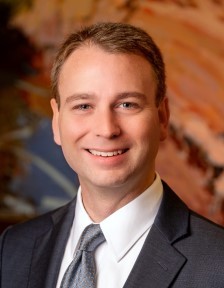Unemployment compensation law amended during last session of legislature
Teachers and other school employees are not allowed to collect unemployment benefits during holidays, spring break, fall break, or summer vacation, because everyone knows that such breaks are an ordinary part of their seasonal work. But what about employees of a private staffing agency who work alongside school employees on a daily basis? Do they get to collect unemployment even though everyone they work with does not?
This is the question one of the firm’s employer-clients asked us. After careful investigation, our answer was that such employees were eligible for unemployment compensation. It turned out that Alabama law, unlike the law of surrounding states, contained a loophole under which employees of private companies that provide direct services to schools do receive unemployment compensation during customary school breaks, even breaks as short as a few days, while actual school employees did not.
This loophole exists primarily because when the unemployment laws were written, private employers did not routinely provide services to educational institutions, so there was no need to exempt their employees from unemployment for breaks in service occasioned by the school’s calendar. In the last few years, however, empirical studies have shown that professionalizing support staff such as substitute teachers helps student achievement. To do so, public schools have increasingly looked to private school staffing agencies to provide trained educators to fill paraprofessional roles. Such businesses can provide trained substitute teachers, teachers’ aides, and other paraprofessionals to schools to provide a high level of competence and minimize the need for schools to invest in training and managing their own paraprofessional workforce. Through these mutually beneficial relationships, overall education quality is improved, schools are run more efficiently, and a genuine market need is met.
But these businesses have been discouraged from providing these services because of the existing unemployment scheme, which punishes them for the fact that schools have customary break periods. These private businesses experience expensive dings to their “experience rating” as a result of unemployment payments to these workers, who perform the same types of jobs as workers who are employed directly by the schools and do not receive unemployment for breaks in service. Moreover, state unemployment agencies are burdened with frequent floods of unemployment claims every time a fall break, winter holiday, or spring break causes staff paraprofessionals to have a day, week, or month off.
To address this issue, there was only one solution: Change the law. So Lanier Ford employment attorneys David Canupp and Chris Pape drafted an amendment to § 25-4-70 of the Code of Alabama 1975 to exempt not only school employees from receiving unemployment compensation during holidays, fall break, spring break, and summer vacation, but also to exempt employees of employers that primarily or exclusively provide services to schools or educational institutions and who likewise don’t work during those periods.
On June 11, 2015, Governor Robert Bentley signed House Bill 71 (now Alabama Act 2015-453) so that this amendment became law. The law takes effect for the next school year.
This change in the law brings Alabama in line with four surrounding states—Florida, Georgia, South Carolina, and Tennessee—all of which have amended their unemployment laws in recent years to exclude employees of private contracting agencies from unemployment coverage for brief breaks in service. More important, with this amendment, Alabama has reinforced its reputation as a state that is “open for business,” leveling the playing field between public and private employers. Lanier Ford is very pleased to have had a role in drafting the amendment and even more pleased to have helped a client in the process.


